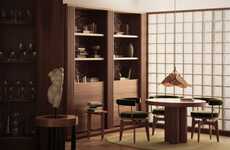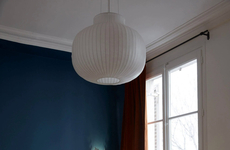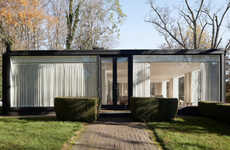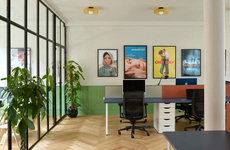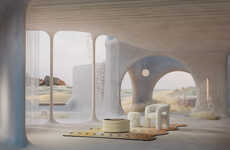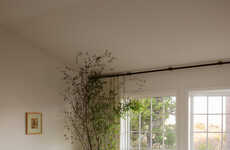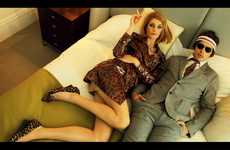
The Mad Men Set Photography Takes You Back in Time
Vasiliki Marapas — May 27, 2014 — Art & Design
References: interiordesign.net & sploid.gizmodo
This Mad Men set photography will have you drooling. Interior Design magazine had the privilege of touring the set, providing us with an in-depth glimpse into the world of debonair Don Draper, from his Park Avenue apartment to his agency office.
Believability is important for writer and producer Matthew Weiner, who explains, "I’m working in a completely fake environment where we control everything. How do we make this feel like it’s real? In every picture of an office from 1930 on, the wires are cut off every lamp, because they look terrible. I tell the set-design team, “Put the wires on!” [...] Because that’s how it would really be."
Weiner also discloses his favorite place on the set, which happens to be Draper's apartment. Weiner cites the wooden texture as the primary reason, mentioning that it gives off a sexy, cosmopolitan vibe.
Believability is important for writer and producer Matthew Weiner, who explains, "I’m working in a completely fake environment where we control everything. How do we make this feel like it’s real? In every picture of an office from 1930 on, the wires are cut off every lamp, because they look terrible. I tell the set-design team, “Put the wires on!” [...] Because that’s how it would really be."
Weiner also discloses his favorite place on the set, which happens to be Draper's apartment. Weiner cites the wooden texture as the primary reason, mentioning that it gives off a sexy, cosmopolitan vibe.
Trend Themes
1. Retro Set Design - Opportunities to incorporate vintage design elements into modern spaces, creating a nostalgic and unique atmosphere.
2. Nostalgia Marketing - Using retro themes and aesthetics in advertising campaigns to appeal to consumers' sense of nostalgia and sentimentality.
3. Set Photography - The rise of social media platforms like Instagram has created a demand for visually appealing set photography in the entertainment industry.
Industry Implications
1. Interior Design - Incorporating vintage design elements into modern spaces for a unique and nostalgic atmosphere.
2. Entertainment - Creating visually appealing set designs and photography for television and film, while incorporating retro aesthetics for a sense of authenticity.
3. Marketing & Advertising - Utilizing nostalgia marketing techniques in advertising campaigns to connect with consumers on an emotional level and create lasting brand loyalty.
5.6
Score
Popularity
Activity
Freshness

